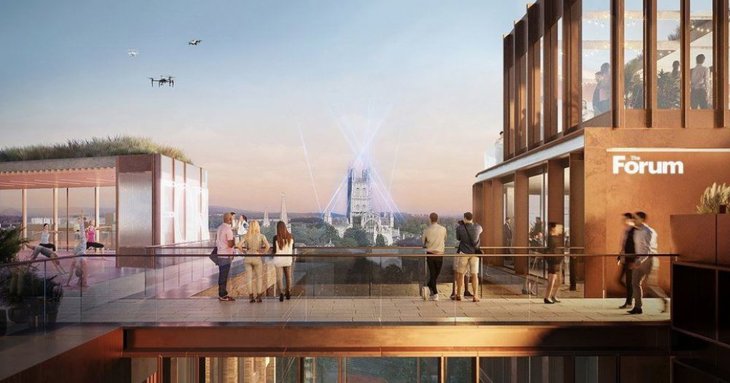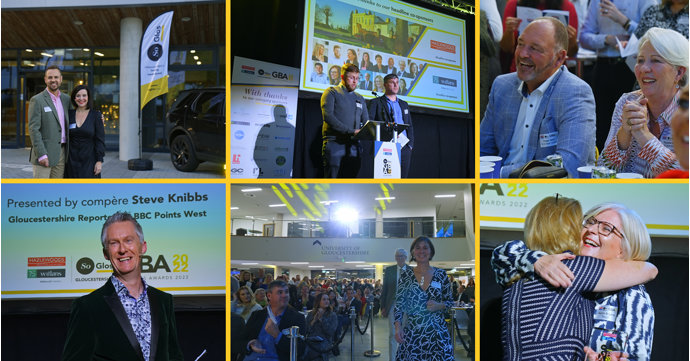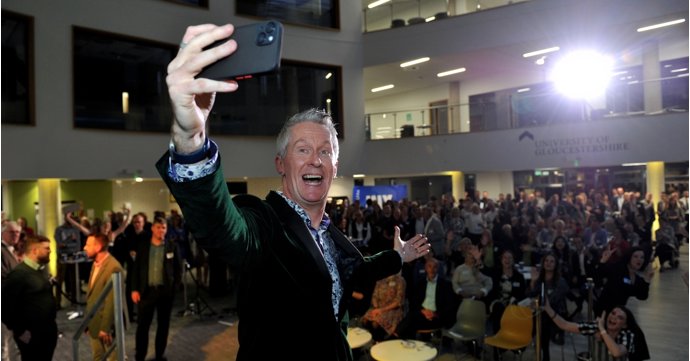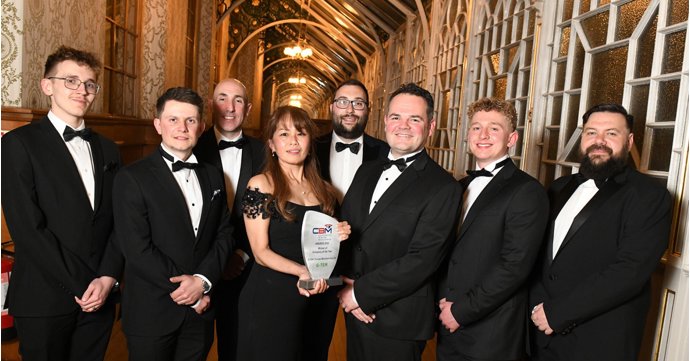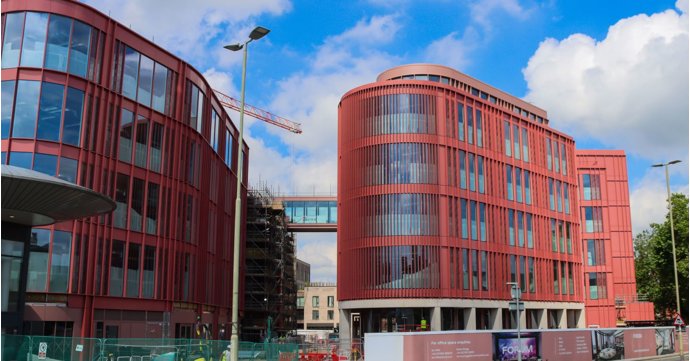It is widely agreed that one of the key challenges facing Gloucestershire’s future economic prosperity is how to retain its younger generations.
Gloucestershire business Evans Jones believes it may have witnessed one potential solution in a most unlikely place.
When a parish council planning meeting went online and interactive during the heights of the pandemic, the results for a community and democracy were astonishing.
The question Evans Jones is asking is whether we are brave enough to repeat the process?
Should we be doing more to reach our whole community when it comes to decisions around planning?
I have spent so many years attending public consultation events and what I see looking back at me is very much an audience of a certain age, and not very diverse. Certainly, from an age point of view, it is not diverse. It is often the settled community that participates. That’s simply not good enough and I think it’s time we looked to try and change that.
But there is no point just inviting young people to planning meetings. We know that generally does not work.
Why is it so important to engage all generations?
If you look at housebuilding, West Cheltenham for example, it has taken nearly 25 years from inception to delivery. That’s an extreme example, but in many cases it will take at least three to five years to bring a scheme to completion.
The generation that will often end up living in these houses and with these developments will have probably never been asked or been involved at all in deciding what they should be like.
What is it you have seen that makes you think the planning process could hold part of the key?
In the pandemic even parish council meetings went online and that brought in a different audience and involved people because they engaged through social media.
In the case of The High School Leckhampton, which we were involved in, it had a dramatic effect. To begin with we went through the usual regime, we went through planning, wrote to 2,000 homeowners, wrote to all the schools in Cheltenham and various stakeholders.
To start with the parish council and those opposed to the school were the most vocal. But when it went online, parents and the community got involved.
Usually, we would see just 10 or 20 people at a planning meeting like that, but we had between 120 and 130 viewing a parish council meeting!
The council opened up the chat, and it meant points were being challenged by informed members of the audience and parents who were telling them what their community wanted.
It was much more representative.
Do you think that kind of engagement could be productive for other schemes as well?
In some cities we are seeing developments we have never seen before because young people have been engaged, where there are elements of private living space and shared space in the same development.
In Gloucester we have The Forum development. It is a great scheme. And we have the University of Gloucestershire moving into Debenhams overlooking Kings Square alongside The Forum. I am a great believer that if you bring people into the city and town centres they will spend.
But, has anyone asked the people who will be living and using those spaces what they would like to see and what they think? They may have, but the point is we should be because they are the ones who will make a decision on using these spaces and who will ultimately make them a success.
A change to the built environment is the end result of a successful planning application, but can it be a powerful and necessary agent of cultural change too?
From employers’ point of view Gloucestershire can be a really difficult place to recruit young people. We are always competing with Bristol, Cardiff, Birmingham and London.
Since the pandemic we have seen another challenge. Big recruitment firms for city employers are offering inflated salaries to young people to come to work for them in a city office one day a week, and from home the rest of the time.
What we would say is this might sound great, but they will not get that level of learning working alongside experienced colleagues to help develop their skills and career if they are not in the office.
If we can get those young people to think about how they can live and also work in their own county, alongside experienced staff on great projects which benefit their communities, they may look at it differently too.
So, what you saw with Leckhampton suggests it is job done – we keep this new ‘online and interactive’ system in place?
Meetings might still be online, but the government has now stopped them being interactive as we return to the ‘old normal’.
Are we talking about lobbying government for reform?
There is some direction from government now as well to try to reach people who are going to be impacted by a development more fully, but I don’t think we can wait for government to make changes. It will take too long. We need to seek to instigate those changes.
I think we have to be proactive ourselves. It is about reaching out. Perhaps that is in trying to reach those in schools, colleges and universities who might be studying relevant courses or who are looking to live and work in those areas and getting them involved.
It is only through asking younger people and listening to what they have to say that we will make our towns and cities more attractive to them as places to live and keep them here in Gloucestershire.
It is through getting everyone involved in the conversation about what sort of county they want and also telling them about what we have already that will change attitudes and also make people feel invested here.
Is it realistic to think this could work?
I am hopeful we have an opportunity for change. We have lots of stakeholders who need to take part for that to happen – from local authorities, parish councils to those in our industry. We all need to seek to engage people in new ways. We have to emphasise the positive and encourage people.
I am under no misconception, it will be difficult. People have been alienated for a long time, so long that changing those behaviours will be a challenge.
And if people engage, we need to make sure they are heard too – or we will lose them.


